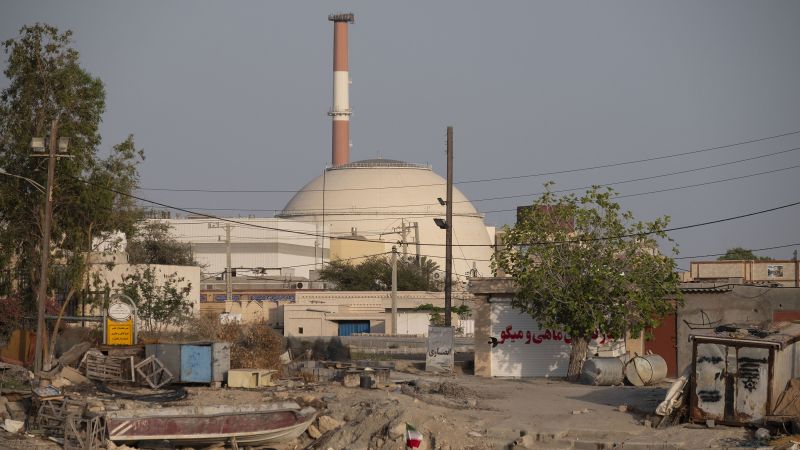Iran Accuses US of Insincerity in Nuclear Talks, Claims 'Trap' Tactics

Tensions surrounding Iran's nuclear program have escalated as a senior Iranian official has accused the United States of acting insincerely in recent indirect negotiations. According to the official's statement to CNN, the discussions, intended to address Tehran's nuclear ambitions and the possibility of sanctions relief, were allegedly orchestrated by Washington as a deliberate 'trap' to heighten regional instability.
This accusation comes at a critical juncture in the ongoing efforts to revive the 2015 Iran nuclear deal, formally known as the Joint Comprehensive Plan of Action (JCPOA). The deal, which limited Iran's nuclear enrichment capabilities in exchange for sanctions relief, began to unravel after the US unilaterally withdrew in 2018 under the Trump administration. Subsequent attempts to reinstate the agreement have faced numerous obstacles, with both sides accusing the other of intransigence.
The Iranian official’s remarks suggest a deep distrust of US intentions. They allege that the American approach was not aimed at reaching a genuine agreement but rather at creating a scenario that would lead to increased tensions and potentially justify further pressure on Iran. This perspective highlights the complexities and challenges in navigating the delicate diplomatic landscape.
The Current State of Negotiations
Indirect talks between Iran and the US, facilitated by the European Union in Vienna, have been on hold for several months. These negotiations involve intermediaries conveying messages and proposals between the two countries, as direct dialogue remains suspended. The primary sticking points revolve around the scope of sanctions relief that Iran demands and the extent to which Iran will be willing to curtail its nuclear activities.
Iran has consistently maintained that it is open to reaching a mutually beneficial agreement, but insists on the complete lifting of all US sanctions imposed since 2018. The US, on the other hand, has demanded that Iran return to compliance with the JCPOA’s restrictions before sanctions relief can be considered. This fundamental disagreement has proven difficult to bridge.
Implications for the Region and Beyond
The breakdown in negotiations and the escalating rhetoric have significant implications for regional stability and international security. A failure to revive the JCPOA could lead to Iran accelerating its nuclear program, potentially leading to a nuclear arms race in the Middle East. It could also trigger a military confrontation between Iran and its adversaries, further destabilizing the region.
Furthermore, the situation has implications for global energy markets. Disruptions to oil supplies from the Persian Gulf, a region heavily influenced by Iranian actions, could send shockwaves through the global economy. The international community is closely monitoring the situation, hoping for a diplomatic resolution that avoids these potentially catastrophic outcomes.
Looking Ahead
The Iranian official’s accusations underscore the deep-seated mistrust and the significant challenges that lie ahead in reviving the Iran nuclear deal. Whether the two sides can overcome these obstacles and find a path towards a mutually acceptable agreement remains to be seen. However, the stakes are high, and the international community is urging both Iran and the US to engage in constructive dialogue and prioritize diplomatic solutions.






